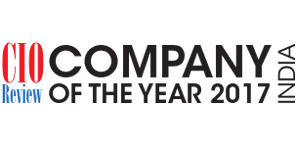 At a time when organizations are faced with the challenge of a monumental increase in data volume, Software-Defined Storage has emerged as the possible solution. Bringing in advantages such as cost efficiency, greater agility, and scalability, software-defined storage revolutionizes the way organizations store and manage their mission-critical data. In fact, with all the buzz surrounding the technology, the software-defined storage market is expected to become worth USD 22.56 Billion approximately by 2021. Triggered by these developments, a number of organizations are already re-evaluating their approach to storage.
At a time when organizations are faced with the challenge of a monumental increase in data volume, Software-Defined Storage has emerged as the possible solution. Bringing in advantages such as cost efficiency, greater agility, and scalability, software-defined storage revolutionizes the way organizations store and manage their mission-critical data. In fact, with all the buzz surrounding the technology, the software-defined storage market is expected to become worth USD 22.56 Billion approximately by 2021. Triggered by these developments, a number of organizations are already re-evaluating their approach to storage. However, many businesses still opt for tape as a cheaper proposition compared to a disk-to-disk backup solution. But drawbacks in the form of serial access and object incompatibility along with the need for data to be copied to disk for any practical use makes it a tangible liability. Rajarshi Bhattacharyya, Country Head- SUSE India, Sri Lanka, Nepal & Bangladesh, throws light on another issue which the traditional storage market is challenged with- "In a traditional storage set up, an organisation very often does not have the liberty to choose the hardware platform which, unwillingly though, compels them to become heavily dependent on the storage solution provider. The process of switchover also becomes an arduous one owing to this dependency. As a result, many vendors take this opportunity to start draining organizations out of their capital resources."
Addressing the Challenges
Driving the growing enterprise storage market with best-in-class solutions, SUSE, a provider of Enterprise solutions for Linux and Open Source, attempts to take the organization a step closer to the realization of the aforementioned advantages on software-defined storage approach with SUSE Enterprise Storage. Strengthened by Ceph, an open source storage platform, SUSE Enterprise Storage is built on top of SUSE Linux Enterprise Server. Ideal for backup, compliance, bulk storage, large data, and active archive applications, the technology is self-managing, self-healing and highly scalable to meet the demands of ever-increasing data.
Now, while adopting a software-defined approach one of the greatest benefits that organizations will experience with SUSE is the freedom from vendor-software lockdown. Rajarshi Bhattacharyya explains- "SUSE delivers to enterprises the freedom to choose the hardware. SUSE Enterprise Storage is hardware agnostic, can leverage commodity hardware and deliver a true unified storage solution i.e block, object and file storage. We empower organizations with the right to choose while also restoring the negotiation power back to the customer."
A thought that is sure to cross any customer's mind while opting for a solution "“ Are they making the right choice? Have they factored the right storage capacity OR is it going to fall short.
How do we increase the capacity? Is scale-out possible and at what cost? Interestingly, with SUSE Enterprise Storage, organizations find themselves the choice to start small and invest in the storage capacity they need today and scale the storage whether scale-up or scale-out as the storage need of the organization grows.
The ongoing costs of owning, managing, scaling, and upgrading the storage infrastructure over its lifetime is also lowered. This makes SUSE Enterprise Storage solution a cost-efficient proposition as well. Moreover, at a time where data is growing explosively, SUSE Enterprise Storage stands as an infinitely scalable and reliable software-defined storage solution that serves the needs of AI, machine learning, and Internet-of-Things.
Confidentiality, Integrity, and Availability of Data
On the security front, confidentiality, integrity, and availability of data are the key areas which concern organizations around the globe. SUSE delivers complete protection at various points of vulnerability with in-flight protection as well as at rest encryption which leverages the ceph-lockbox deployment mechanism. This prevents any sort of unauthorized hear drop of data. Authorizing user access via SCSI CHAP / User Access Key for S3 further enhances the confidentiality of the server.
SUSE ensures that integrity of customer data stays intact through the implementation of data scrubbing which prevents bit-flips. It also provides the feature of data cleansing by amending or removing incorrect, incomplete, improperly formatted, or duplicate data thus ensuring data correctness.
Finally, any enterprise data management platform must ensure data availability in all situations-from normal through disastrous. Multipath data access and ACL LUN masking through iSCSI, time variant data cloning/snapshot, redundant network switches for both production and cluster interlink and policies to backup data implemented through erasure protocols ensures availability of data at any point in time.
Carrying forward the Open Source Philosophy
A key contributor to the Ceph project, SUSE aims to continue its efforts towards innovation with a focus on managing storage within an enterprise. Closely associated with Ceph, the firm also works in close alignment to Open Attic, an open source project which delivers a common platform to manage different sets of storage including traditional and software-defined storage. In the near future, Rajarshi Bhattacharyya envisions SUSE's software-defined storage model which embraces the open source philosophy gaining immense popularity along with software-defined strategies dictating the IT solutions market.
The ongoing costs of owning, managing, scaling, and upgrading the storage infrastructure over its lifetime is also lowered. This makes SUSE Enterprise Storage solution a cost-efficient proposition as well. Moreover, at a time where data is growing explosively, SUSE Enterprise Storage stands as an infinitely scalable and reliable software-defined storage solution that serves the needs of AI, machine learning, and Internet-of-Things.

SUSE Enterprise Storage is hardware agnostic, can leverage commodity hardware and deliver a true unified storage solution
Confidentiality, Integrity, and Availability of Data
On the security front, confidentiality, integrity, and availability of data are the key areas which concern organizations around the globe. SUSE delivers complete protection at various points of vulnerability with in-flight protection as well as at rest encryption which leverages the ceph-lockbox deployment mechanism. This prevents any sort of unauthorized hear drop of data. Authorizing user access via SCSI CHAP / User Access Key for S3 further enhances the confidentiality of the server.
SUSE ensures that integrity of customer data stays intact through the implementation of data scrubbing which prevents bit-flips. It also provides the feature of data cleansing by amending or removing incorrect, incomplete, improperly formatted, or duplicate data thus ensuring data correctness.
Finally, any enterprise data management platform must ensure data availability in all situations-from normal through disastrous. Multipath data access and ACL LUN masking through iSCSI, time variant data cloning/snapshot, redundant network switches for both production and cluster interlink and policies to backup data implemented through erasure protocols ensures availability of data at any point in time.
Carrying forward the Open Source Philosophy
A key contributor to the Ceph project, SUSE aims to continue its efforts towards innovation with a focus on managing storage within an enterprise. Closely associated with Ceph, the firm also works in close alignment to Open Attic, an open source project which delivers a common platform to manage different sets of storage including traditional and software-defined storage. In the near future, Rajarshi Bhattacharyya envisions SUSE's software-defined storage model which embraces the open source philosophy gaining immense popularity along with software-defined strategies dictating the IT solutions market.







